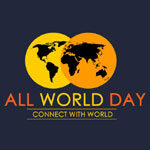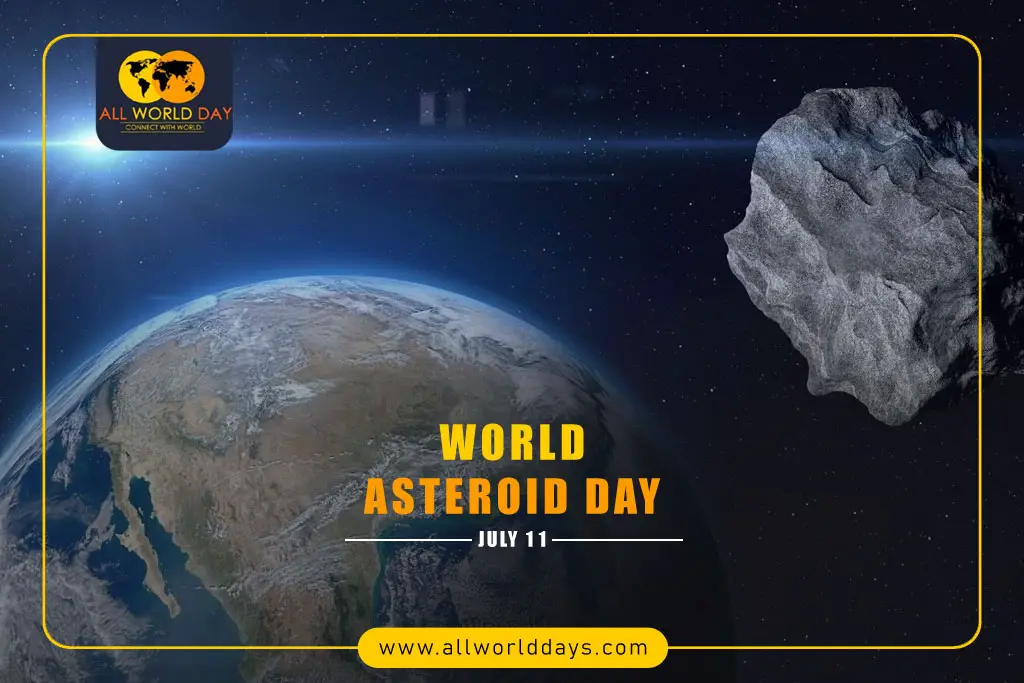World Asteroid Day 2024, observed on June 11th each year, is a global event dedicated to raising awareness about asteroids and the importance of protecting our planet from potential impacts. This day serves as a reminder of the significance of space exploration and the ongoing efforts to understand and mitigate the risks posed by asteroids. Let’s delve into the theme, history, ways to celebrate, and inspiring quotes that encapsulate the essence of World Asteroid Day.
World Asteroid Day 2024 Theme:
The theme of World Asteroid Day revolves around education, outreach, and action. It aims to promote scientific understanding of asteroids, highlight the potential hazards they pose to Earth, and foster international cooperation in addressing these challenges. By raising public awareness, advocating for asteroid research, and supporting efforts to develop asteroid detection and deflection technologies, World Asteroid Day encourages collective action to safeguard our planet.
World Asteroid Day History:
World Asteroid Day was officially designated by the United Nations in 2016, commemorating the anniversary of the largest asteroid impact in recorded history – the Tunguska event in Siberia, Russia, on June 11, 1908. This cataclysmic event, which flattened over 2,000 square kilometers of forest, serves as a stark reminder of the destructive power of asteroids and the importance of monitoring near-Earth objects.
How to Celebrate World Asteroid Day 2024:
Educational Events: Organize or attend workshops, seminars, and lectures to learn about asteroids, their characteristics, and potential impact scenarios. Many museums, observatories, and educational institutions host special programs on World Asteroid Day.
Stargazing Parties: Gather with friends and family for a night of stargazing to appreciate the wonders of the universe. Use telescopes or binoculars to observe celestial objects, including asteroids, and learn how to identify them in the night sky.
Support Research: Contribute to scientific research by participating in citizen science projects or donating to organizations dedicated to asteroid detection and exploration. Your support can help advance our understanding of asteroids and improve our ability to predict and prevent potential impacts.
Spread Awareness: Share information about World Asteroid Day on social media platforms using #AsteroidDay and #SpaceExploration hashtags. Raise awareness about the importance of asteroid research and encourage others to join the global effort to protect our planet.
Create Art: Express your creativity by creating artwork, poetry, or music inspired by asteroids and space exploration. Use your talents to convey the beauty and mystery of the cosmos and inspire others to explore the wonders of the universe.
World Asteroid Day Quotes:
- “The Earth is a cradle of humanity, but mankind cannot stay in the cradle forever.” – Konstantin Tsiolkovsky
- “Every single asteroid discovered and tracked adds to our understanding of the solar system and its history.” – Lindley Johnson
- “Asteroids are nature’s way of asking, ‘How’s that space program going?'” – Neil deGrasse Tyson
- “Space exploration is a force of nature unto itself that no other force in society can rival.” – Neil deGrasse Tyson
- “We are all astronauts on spaceship Earth.” – Buckminster Fuller
Conclusion:
World Asteroid Day 2024 serves as a poignant reminder of the fragility of our planet and the importance of space exploration in protecting our future. By coming together to raise awareness, support research, and celebrate the wonders of the universe, we can work towards a safer and more sustainable future for generations to come. Join us on June 11th as we honor the legacy of the Tunguska event and reaffirm our commitment to exploring, understanding, and protecting our cosmic home.
Certainly! Here are some frequently asked questions (FAQs) about World Asteroid Day:
What is World Asteroid Day?
World Asteroid Day is a global event observed on June 11th each year to raise awareness about asteroids, their characteristics, and the potential hazards they pose to Earth.
Why is World Asteroid Day celebrated on June 11th?
World Asteroid Day commemorates the anniversary of the Tunguska event, the largest asteroid impact in recorded history, which occurred in Siberia, Russia, on June 11, 1908.
What is the purpose of World Asteroid Day?
The purpose of World Asteroid Day is to promote scientific understanding of asteroids, highlight the importance of asteroid research, and foster international cooperation in addressing the risks posed by near-Earth objects.
How can I participate in World Asteroid Day?
You can participate in World Asteroid Day. By attending educational events. organizing stargazing parties, supporting asteroid research initiatives, spreading awareness on social media. And creating art inspired by asteroids and space exploration.
What are the potential hazards of asteroids?
Asteroids have the potential to collide with Earth, causing significant damage and posing a threat to life and property. By studying asteroids and developing detection and deflection technologies, scientists aim to mitigate the risks associated with asteroid impacts.
How asteroids detected and tracked?
Asteroids detected and tracked using ground-based telescopes, space-based observatories, and dedicated survey programs. Scientists analyze the orbits and characteristics of asteroids to assess their potential impact hazards.
What are some ongoing efforts to protect Earth from asteroid impacts?
Ongoing efforts to protect Earth from asteroid impacts include developing early warning systems. Improving asteroid detection capabilities, researching deflection techniques. And conducting international collaboration and coordination.
How can I learn more about asteroids and space exploration?
You can learn more about asteroids and space exploration by attending educational events. Visiting museums and observatories, reading books and scientific articles, watching documentaries. And engaging with online resources provided by space agencies and research institutions.
Feel free to ask if you have any other questions or need further clarification!


